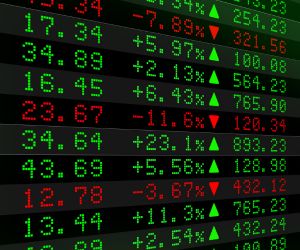Lucid is a rising stock, experiencing a notable increase in its value due to its innovations in the design and manufacturing of luxury electric vehicles. It is listed on the NASDAQ, the nerve center of technology stock trading in North America. Is it a good investment then? Are there ups and downs? What investment strategy should I use with this stock? This article will answer these questions and more.

Steps to Invest in Lucid Group
Research and Analysis:
Lucid Group is a luxury electric vehicle manufacturer, known for its flagship model Lucid Air, which directly competes with Tesla in the premium segment. Its technology focuses on high-efficiency batteries and advanced electric propulsion systems. The company has received investments from the Saudi Public Investment Fund (PIF), which bolsters its capitalization and expansion ambitions. Before investing, analyze its production capacity, market adoption, and revenue growth.Opening an Investment Account:
Lucid Group is listed on the Nasdaq under the ticker LCID. To invest, you need an account with a brokerage that provides access to U.S. markets. Evaluate brokers with low fees and advanced analysis tools, as the stock is highly speculative and volatile. You will typically be asked for a copy of your identification and a utility bill to verify your identity and address. Compare fees, trading platforms, and services offered by each brokerage to choose the one that best suits your needs.Defining the Investment Strategy:
Lucid is a growth-stage company, which implies high volatility and long-term appreciation potential. Its success depends on its ability to scale production and maintain demand, as well as the evolution of the electric vehicle (EV) sector. The stock may be suitable for investors willing to take risks and hold positions medium to long-term, betting on its global expansion.Execution and Monitoring:
Monitor their production reports, vehicle deliveries, and profit margins. It is also crucial to observe the competition with Tesla, Rivian, and other EV manufacturers, as well as the development of charging infrastructure and government subsidies for electric cars.Portfolio Diversification:
To reduce risks, combine investing in Lucid with other companies in the EV sector, such as Tesla (TSLA), Rivian (RIVN), or BYD (BYDDY). You can also include ETFs like DRIV, which tracks leading companies in electric mobility and batteries.
SWOT Analysis of Lucid as an Investment
Lucid is an emerging company in the luxury electric vehicle manufacturing sector. This SWOT analysis reviews the internal and external factors that influence its performance in the competitive electric automotive sector.
Strengths:
Focus on high-end electric vehicles: Lucid aims to position itself in the premium segment, offering sophisticated technology and design.
Innovation and advanced technology: Its emphasis on high-efficiency batteries and extended range distinguishes it in the EV market.
Investor support: It has secured significant funding that supports production and the development of new models.
Weaknesses:
Lack of commercial track record: As a relatively new company, it faces challenges in large-scale production and brand consolidation.
High manufacturing costs: Producing luxury electric vehicles requires substantial investments in technology and specialized labor.
Intense competition: Tesla, Porsche, Mercedes, and other established brands are vying for the premium electric vehicle segment.
Opportunities:
Expansion of the EV market: Growing demand for electric cars and the adoption of zero-emission policies boost Lucid's potential.
Strategic alliances: Collaborating with battery and technology suppliers can optimize costs and accelerate innovation.
International markets: Entering regions with incentives for electric vehicles can increase sales and diversify risks.
Threats:
Challenges in large-scale production: Scaling manufacturing and meeting delivery goals can lead to delays and cost overruns.
Supply chain volatility: Availability of components (like chips or batteries) can affect production and delivery timelines.
Competitive environment: Established companies and new startups continue to enter the EV market, intensifying competition.
What is an International Stock Broker?
An International Stock Broker is the entity (or platform) that allows you to buy and sell shares of companies listed on stock exchanges in different countries around the world. Unlike a local brokerage, the main focus of International Brokers is to offer access to global markets, such as the US, European, or Asian markets.
Why do we need an International Stock Broker?
Investing in international stocks can be an excellent way to diversify your portfolio, as it gives you the opportunity to participate in the growth of economies and sectors worldwide. However, operating in global markets is not as simple as doing so in the local market: it requires specific knowledge, compliance with international regulations, and the use of advanced trading platforms.
An International Stock Broker brings all these investment opportunities together in one place and allows you to access different exchanges and trading conditions, in exchange for a commission.
Examples and Comparisons:
There are several well-known International Stock Brokers, such as Interactive Brokers, eToro, TD Ameritrade, or Saxo Bank, among others. Each offers trading platforms with specific features and fees that vary depending on the service. Some are notable for providing market advisory and analysis in multiple languages, while others may offer more competitive operating costs or social investment tools. These details allow you to choose the option that best suits your needs and investor profile.
Regulatory and Security Aspects
It is essential that the International Stock Broker you choose is regulated by recognized entities in the country where it operates, such as the U.S. Securities and Exchange Commission (SEC) in the United States, the Financial Conduct Authority (FCA) in the United Kingdom, or the Comissão de Valores Mobiliários (CVM) in Brazil, among others. This supervision ensures that the broker complies with strict security and transparency standards, which gives you greater confidence when investing your money.
How do Brokers "connect" to International Markets?
Through agreements with foreign stock exchanges and the use of advanced technological platforms, International Stock Brokers process the buy and sell orders placed by their clients. They order transactions according to price, order of arrival, and other parameters, and charge a commission when the transaction is executed. This technological infrastructure allows operations to be carried out quickly and securely, facilitating real-time tracking of your investments.
In conclusion, an International Stock Broker is your gateway to the world's most important stock markets. Thanks to its regulation, trading platforms, and knowledge of global markets, you will be able to diversify your portfolio and seek growth opportunities in different sectors and countries.





